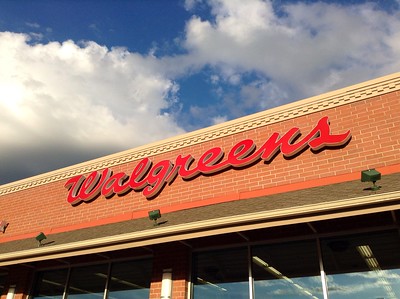If you’ve ever had a prescription filled at Walgreens, you know how important it is to have your medication on time. But what happens when your prescription is delayed, and you’re left waiting for your medication to arrive? There are many reasons why your prescription may be delayed at Walgreens, from insurance issues to inventory problems.
In this article, we’ll explore the most common reasons for prescription delays at Walgreens, including the steps you can take to prevent and resolve them. We’ll also provide insights into the pharmacy’s policies and procedures for filling prescriptions, and offer tips on how to communicate effectively with your pharmacist to ensure that your medication is delivered on time.
Whether you’re a regular Walgreens customer or just curious about the prescription filling process, you’ll gain a deeper understanding of the factors that can impact the timeliness of your medication and how to navigate them. So, if you’re ready to learn more about why your prescription may be delayed at Walgreens, let’s dive in and get started!
Table of Contents
Understanding Prescription Processing
Prescription processing is a complex and highly regulated process that involves multiple steps to ensure the safety and accuracy of the medication being dispensed. At Walgreens, prescriptions go through a rigorous process to ensure that they are filled correctly and in a timely manner.
The process of prescription processing involves several steps, including:
- Receiving the prescription: When a prescription is received, it is entered into the Walgreens system and verified for accuracy and completeness. This includes checking the patient’s name, date of birth, medication name, dosage, and any other relevant information.
- Insurance verification: Once the prescription has been entered into the system, Walgreens will verify the patient’s insurance coverage to determine if the medication is covered and what the patient’s copay will be.
- Prescription review: The prescription is then reviewed by a pharmacist to ensure that it is appropriate for the patient and that there are no potential drug interactions or other issues.
- Prescription filling: Once the prescription has been verified and reviewed, it is filled by a pharmacy technician or pharmacist. The medication is counted, labeled, and packaged according to Walgreens’ strict standards.
- Quality control: Before the medication is dispensed, it undergoes a final quality control check to ensure that it is the correct medication, dosage, and quantity.
- Dispensing: Once the medication has passed all quality control checks, it is dispensed to the patient along with any necessary instructions or counseling.
While delays can occur due to a variety of factors, including insurance issues and medication shortages, Walgreens is committed to working with patients and healthcare providers to ensure that prescriptions are filled accurately and in a timely manner.
Common Reasons Why Your Prescription is Delayed at Walgreens
Prescription delays are a common issue that patients face when filling their prescriptions at Walgreens. Here are some of the most common reasons for prescription delays:
Insurance Verification Issues
One of the most common reasons why your prescription might delayed at walgreens might be insurance verification issues. Walgreens may need to verify a patient’s insurance coverage to ensure that the medication is covered by their plan.
This process can take time, especially if the patient’s insurance company is slow to respond. Patients can help speed up this process by providing accurate insurance information when dropping off their prescription.
Out-of-Stock Medications
Another common reason for prescription delays is out-of-stock medications. Sometimes, Walgreens may not have a patient’s medication in stock and may need to order it from a supplier.
This can cause a delay in filling the prescription. Patients can check with their Walgreens pharmacist to see if the medication is in stock before dropping off their prescription.
High Prescription Volume
Finally, high prescription volume can also cause delays in filling prescriptions. During peak hours, Walgreens may have a high volume of prescriptions to fill, which can cause delays.
Patients can help reduce their wait time by dropping off their prescription during off-peak hours, such as early in the morning or late at night.
Walgreens Prescription Policies
Refill Timing
Walgreens has a policy that allows customers to refill their prescriptions up to two days before the due date. This policy is in place to ensure that there is enough time for the pharmacy to prepare the medication and for the customer to pick it up before it runs out. If a customer tries to refill a prescription before the two-day window, the system will not allow it.
In some cases, the pharmacy may delay the refill of a prescription if it is deemed necessary. This may happen if the pharmacy needs to verify the prescription or if there is a question about the dosage or medication. If this occurs, the customer will be notified and given an estimated time for when the prescription will be ready.
Prescription Transfer Procedures
Walgreens has a policy that allows customers to transfer their prescriptions from other pharmacies to Walgreens. The process is straightforward and can be done either in-store or online.
Customers will need to provide the name of the medication, the dosage, and the name and phone number of the pharmacy where the prescription is currently filled.
Once the transfer is complete, the customer will be notified when the prescription is ready for pickup. It is important to note that some medications may not be transferable due to state laws or insurance restrictions. In these cases, the customer will be notified and given alternatives.
How to Address Prescription Delays
Prescription delays can be frustrating and inconvenient. However, there are steps you can take to address the issue and ensure that your medication is filled in a timely manner.
Contacting Your Healthcare Provider
If you are experiencing a prescription delay, the first step is to contact your healthcare provider. They may be able to provide additional information about the delay or offer alternative solutions. This could include prescribing a different medication or providing a temporary supply.
When contacting your healthcare provider, be sure to provide them with as much information as possible. This could include the name of the medication, the dosage, and the date it was prescribed.
Additionally, if you have any concerns or questions about your medication, be sure to bring them up during your conversation.
Speaking with Your Pharmacist
Another option for addressing prescription delays is to speak with your pharmacist. They may be able to provide additional information about the delay or offer alternative solutions. This could include contacting your healthcare provider or transferring your prescription to a different pharmacy.
When speaking with your pharmacist, be sure to provide them with as much information as possible. This could include the name of the medication, the dosage, and the date it was prescribed. Additionally, if you have any concerns or questions about your medication, be sure to bring them up during your conversation.
Overall, addressing prescription delays requires communication and collaboration between healthcare providers and pharmacists. By taking proactive steps and advocating for yourself, you can help ensure that your medication is filled in a timely manner.
Preventive Measures to Avoid Delays
Prescription delays can be frustrating for patients, but there are some preventive measures that can be taken to avoid them. Here are a few suggestions:
Regular Refill Schedules
One way to prevent prescription delays is to keep a regular refill schedule. Patients should keep track of when their prescriptions are running low and request refills in advance. This can help ensure that the medication is ready for pickup when needed and can prevent last-minute rush orders that may cause delays.
Keeping Insurance Information Updated
Another common cause of prescription delays is outdated insurance information. Patients should make sure that their insurance information is up to date and that they have the correct coverage for their medications. This can help prevent delays caused by insurance issues, such as prior authorization requirements or coverage denials.
Patients can also consider enrolling in automatic refill programs offered by their pharmacy. This can help ensure that prescriptions are refilled on schedule and can prevent delays caused by forgetfulness or other issues.
By taking these preventive measures, patients can help ensure that their prescriptions are filled and ready on time, and can avoid the frustration and inconvenience of prescription delays.







